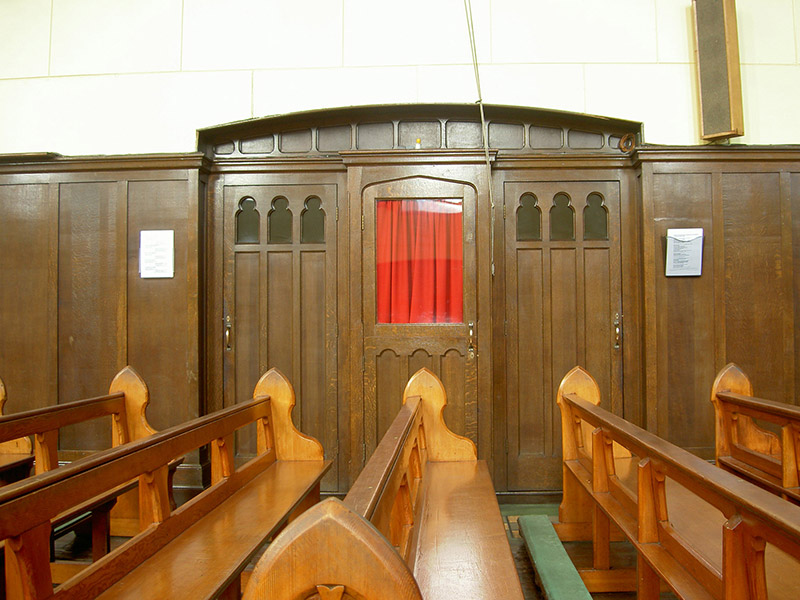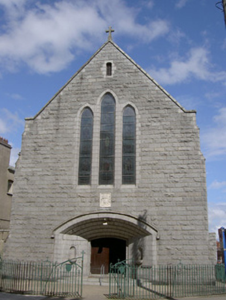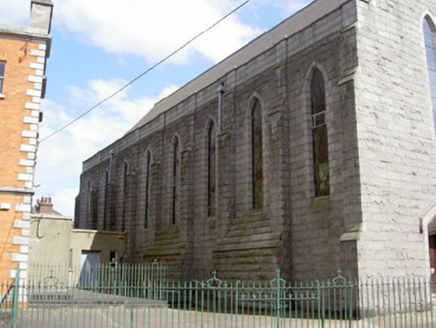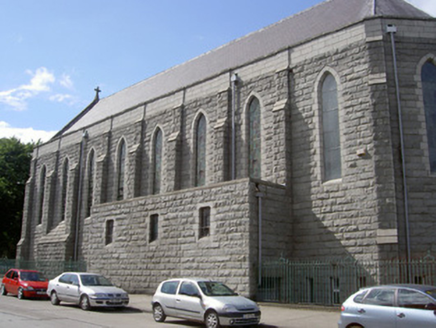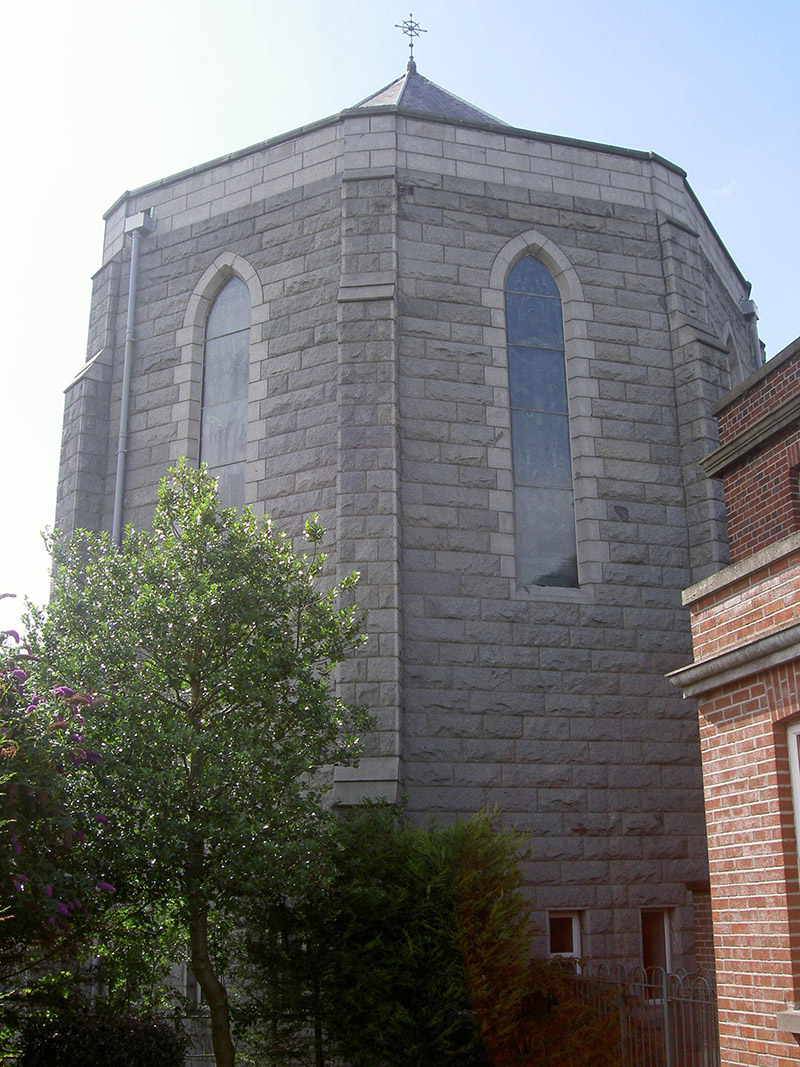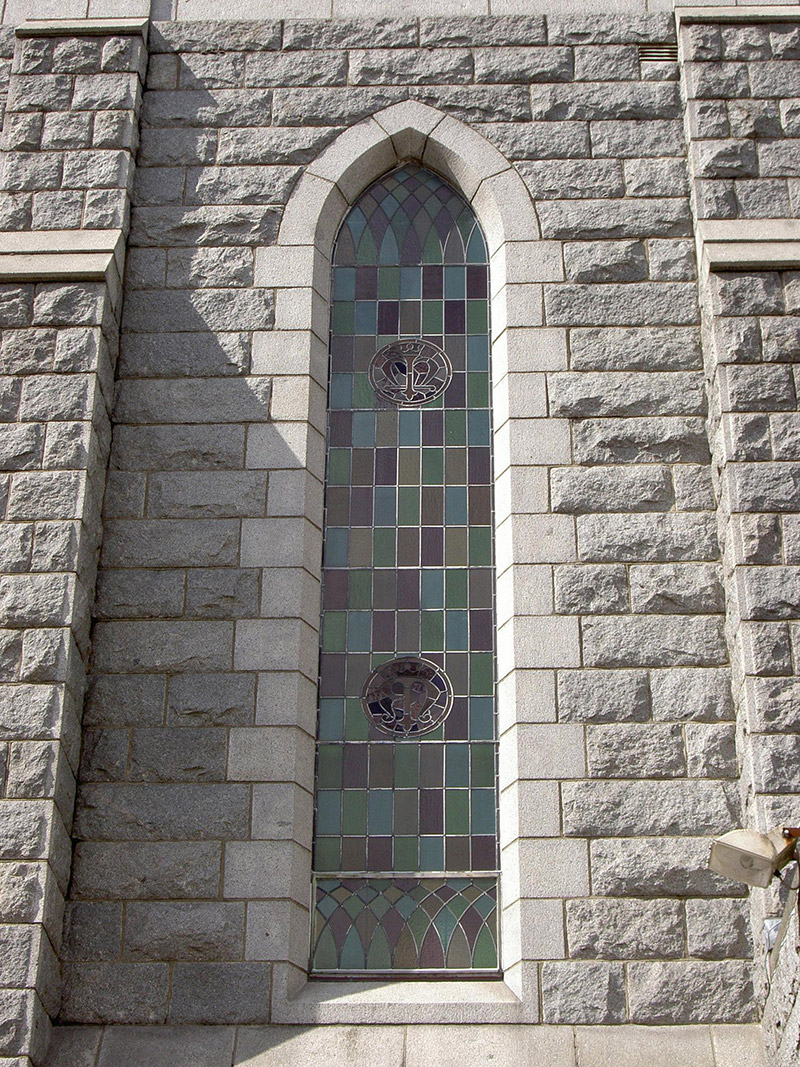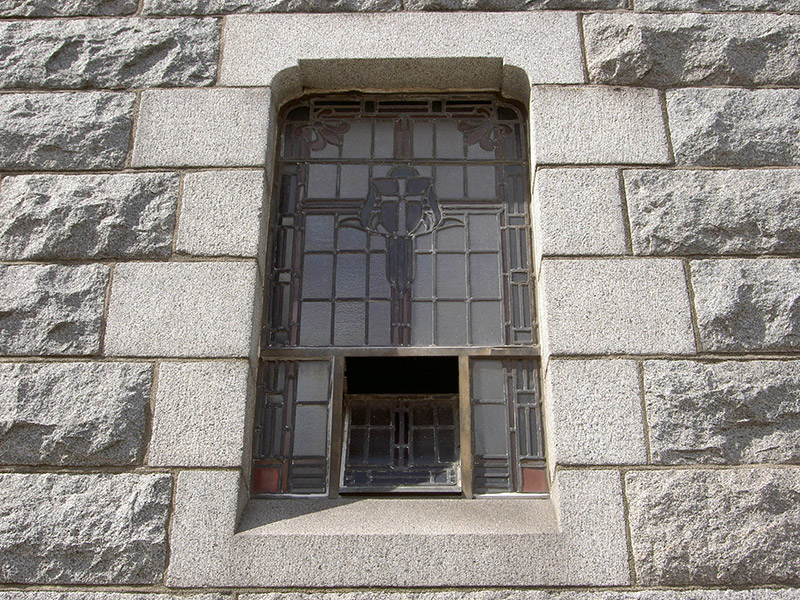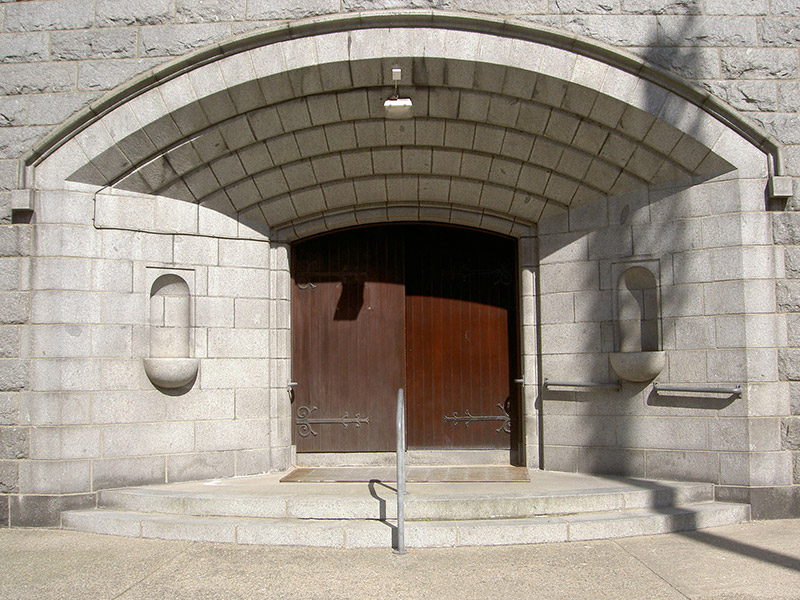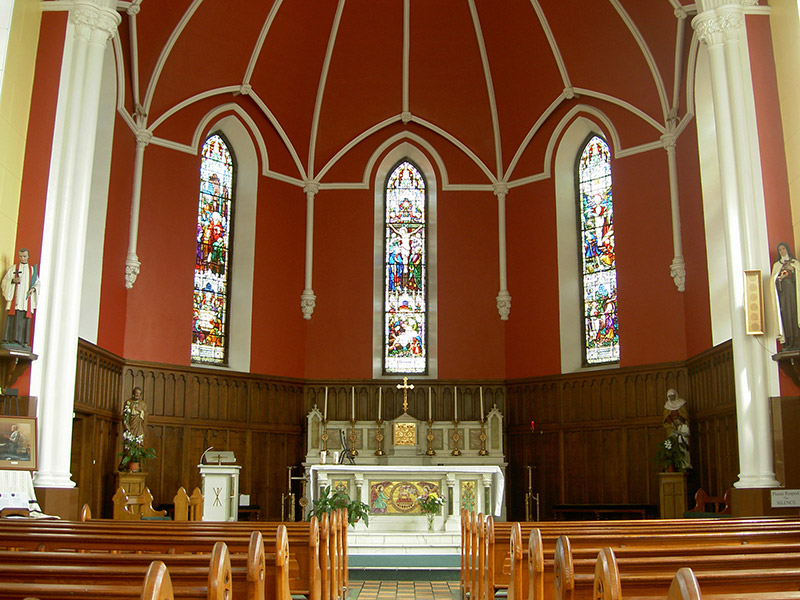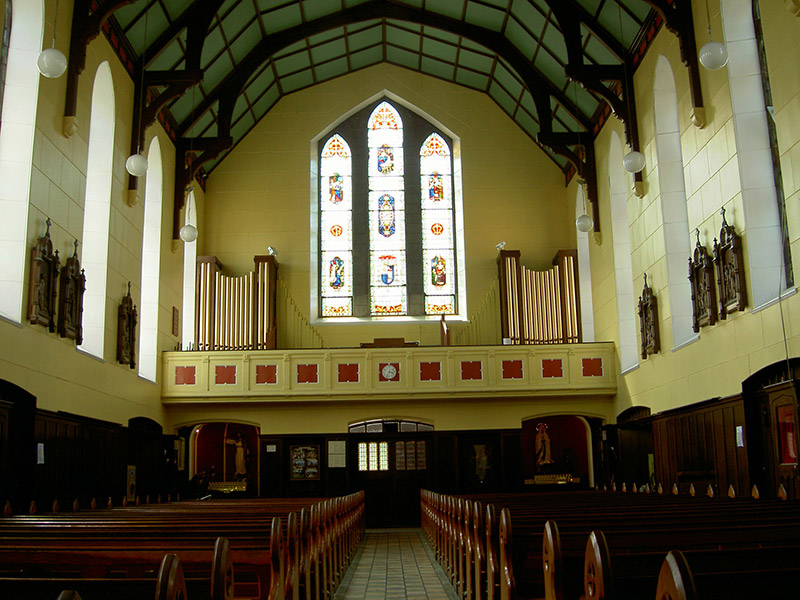Survey Data
Reg No
13702023
Rating
Regional
Categories of Special Interest
Architectural, Artistic, Social, Technical
Original Use
Church/chapel
In Use As
Church/chapel
Date
1930 - 1940
Coordinates
304916, 307757
Date Recorded
18/07/2005
Date Updated
--/--/--
Description
Corner-sited freestanding gable-fronted Roman Catholic church, dated 1935. Rectangular-plan, eight-bays to nave, apse to east, flat-roofed side chapel to south, sacristy to north. Pitched slate roof, crested clay ridge tiles, tooled stone verge coping, cut stone cross finial to west, gutter hidden by parapet, hoppers fed through channels in ashlar granite, circular cast-iron downpipes. Ashlar rock-faced granite walling, pier buttresses to north and south elevations, carved Portland limestone plaque to west elevation. Pointed arch lancet window openings to nave, ashlar block-and-start surrounds, chamfered sills stained glass leaded lights; shoulder-arched window openings to side chapel, stained glass leaded lights; square-headed window openings to sacristy, painted timber-framed single-pane windows. Recessed splayed segmental-headed door opening to west, stepped archivolt, ashlar walling, water fonts to north and south, roll-moulded surround to door, painted timber vertically-sheeted double doors, stone steps; square-headed opening to south, ashlar surround, painted timber vertically-sheeted doors, tooled stone steps; square-headed door opening to sacristy, painted timber panelled doors. Interior with tiled entrance porch, painted timber wainscoting, timber confession boxes to north and south flush to wall, Lady's Chapel to south; pointed arch chancel, engaged columns, crocket capitals, hood moulding, foliate stops, stained glass leaded light windows to chancel depicting scenes from Jesus' life; organ gallery to west. Bounded by wrought-iron railings and gates.
Appraisal
This handsome stone church, part of the complex of Saint Mary's College, is a prominent landmark on Saint Mary's Road. It exhibits high quality workmanship in its well executed granite walling with its varied treatments as well as artistic qualities in the strained glass windows. The striking Romanesque-style door opening is of particular interest and the wrought-iron railings complete the site which is an important structure within the built heritage of Dundalk.
